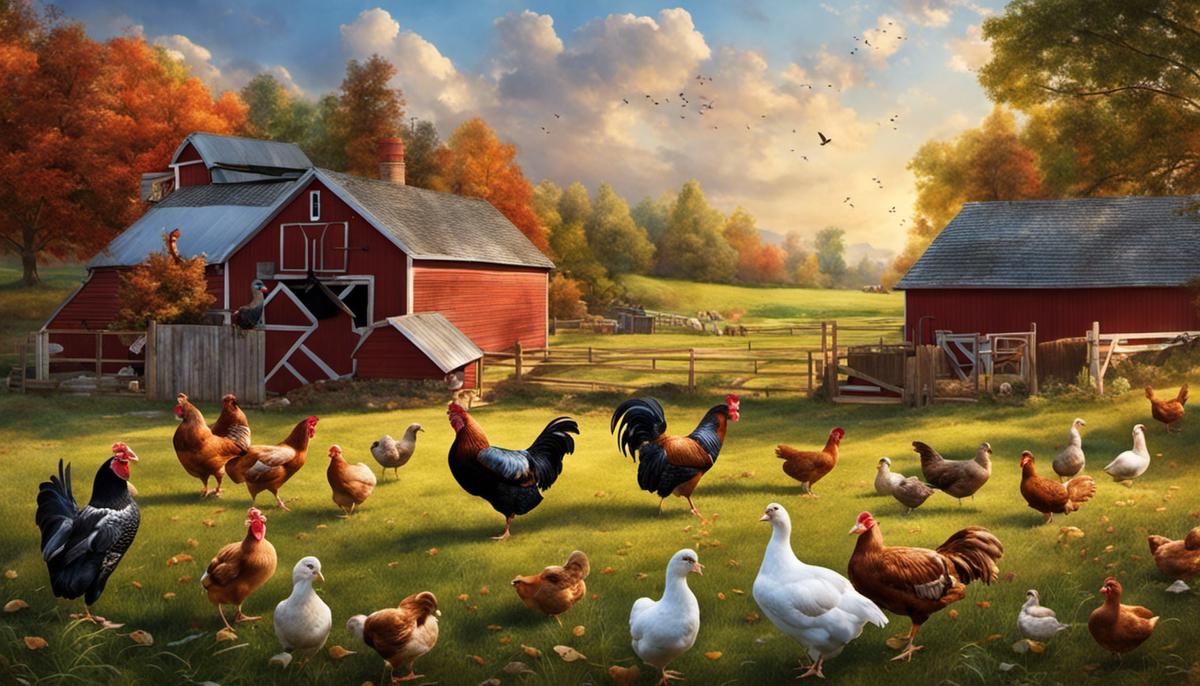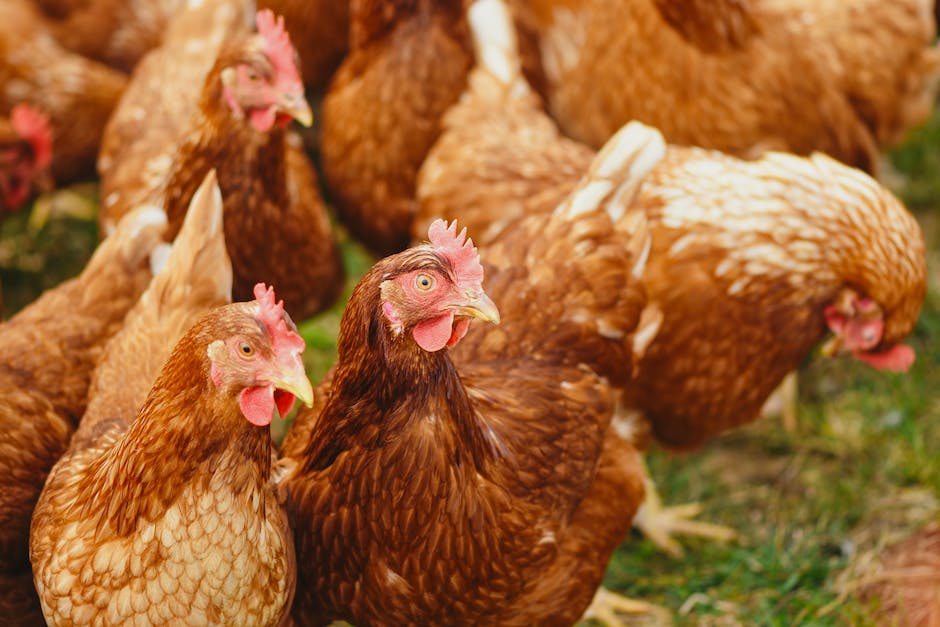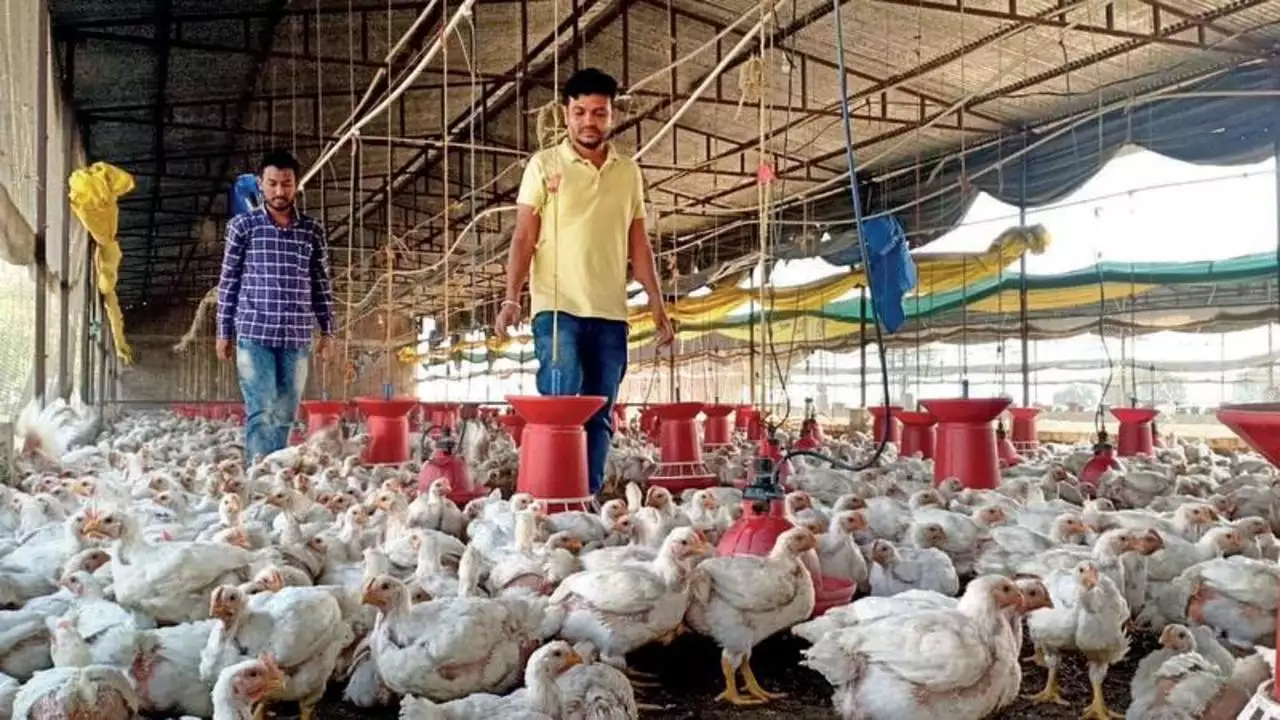

Agridisk
Egypt - Alexandria

WHAT IS A POULTRY FARM? AND How to Start Raising Chickens?
Description: Poultry farming has emerged as a significant industry owing to its vital role in the global food supply. At its core, it revolves around raising various species of poultry including chickens, turkeys, ducks, and geese for the main purpose of producing meat and eggs. Exploring the world of poultry farming, this discourse delves deep into the nuances of this intriguing industry, shedding light on its importance, types of farms, various farming methodologies employed, potential challenges, and best practices. Understandably, the complexity of poultry farming extends beyond mere breeding and feeding, demanding a comprehensive understanding of different processes, techniques, and potential issues that could be encountered. Poultry farming refers to the process of raising various types of domestic birds, especially for their meat, eggs, or feathers. These birds are commonly chickens, turkeys, ducks, and geese. There are different aspects of poultry farming, varying from breeding to feed supply, disease control, and essentially ensuring the overall wellbeing of the birds. The farms can be smaller, family-operated farms or larger, industrial-scale operations, which can house hundreds of thousands of birds. Poultry farming is of great importance because it significantly contributes to food security, economic growth, and job creation. It helps to meet the high demand for animal protein in the form of eggs and meat. Poultry farming is lucrative as it requires minimum investment and space compared to other livestock farming. Furthermore, birds mature quickly, allowing farmers to gain returns on their investment in a relatively short timeframe. Poultry farming also supports the grain industry, as birds are major consumers of grain feeds. A poultry farm is a specially established facility where birds, such as chickens, ducks, turkeys, and geese, are raised purposefully for meat production or their eggs. These farms can be categorized based on their specific focus or size, and come in various types. Some concentrate only on egg production and are typically referred to as laying farms. Conversely, other farms are specially dedicated to raising birds for meat. These are called broiler farms. Additionally, other designations like free-range, organic, and cage-free indicate the methods used in rearing the birds. The management needs of these farm types can differ noticeably. For instance, laying farms require special attention to the hens' diet, ensuring it is rich in calcium to assist in eggshell formation. On the other hand, broiler farms emphasize achieving swift growth rates for their birds. The methodologies applied in raising poultry can differ markedly, ranging from traditional strategies to more modern-day techniques. Free-range farming represents one of the most time-honored practices. This method allows for birds to traverse openly outdoors, participating in natural patterns of behavior such as foraging. Despite being less intensive on the production front, free-range systems are often deemed preferable due to the perceived benefits to the birds' welfare it provides. More intensive methods have developed with the industrialization of poultry farming, including the battery cage system and the furnished cage system. In the battery cage system, hens are kept in small cages with limited movement, allowing for a high density of birds. This method is very efficient in terms of production but has been criticized due to welfare concerns. To address these issues, the furnished cage system was developed. It provides more space and facilities such as nesting areas and perches, reflecting a middle ground between productivity and welfare. Organic poultry farming, a farming method which has seen significant growth in popularity lately, is a health-conscious and ethical alternative to many conventional farming methods. By abstaining from the use of synthetic pesticides, genetically modified organisms and certain procedures deemed harmful to either the birds or the environment, it prioritizes both sustainability and animal welfare. However, it's important to consider that the nature of organic farming often results in higher operational expenses and lower productivity compared to other more intensified farming methods. These factors play a pivotal role in defining the quality and quantity of poultry produce generated from this particular farming system. Running a poultry farm brings with it several challenges, with diseases, feeding, and management topping the list. Poultry farms are susceptible to both bacterial and viral infections, and diseases such as the Avian flu and Newcastle disease pose significant threats. If not timely detected and controlled, these diseases could potentially devastate the entire flock. Ensuring strict adherence to hygiene standards, initiating vaccination procedures, and engaging in prompt veterinary interventions can successfully mitigate these potential issues. Feeding also represents a crucial factor in maintaining a healthy flock. It's imperative to provide optimal nutrition to the birds to ensure their wellbeing and productivity. Neglecting proper feeding standards may result in malnutrition, decreased productivity and increased susceptibility to diseases. By focusing on nutritional research, seeking expert advice, and choosing quality feed products, a balanced and nutrition-rich feed system can be established. To overcome these roadblocks and shift the odds in favor of success, it is important to adhere to best practices for poultry farming. Firstly, selecting the right breed of poultry that suits the environmental and market conditions is key. Some breeds are more resistant to certain diseases, others mature faster, and still others lay more eggs. Research and knowledge in this regard can afford a significant advantage. Proper feeding is critical; birds must have a balanced diet rich in proteins, vitamins, and minerals. Overfeeding or underfeeding can both lead to health problems. Ensuring proper healthcare practices is another cornerstone of successful poultry farming. Routine health checks, vaccinations, and disease surveillance are all part of a comprehensive healthcare routine. Boosting the birds’ immunity through balanced nutrition and stress management can also notably enhance disease resistance. At last, professional and efficient farm management that includes good record keeping, regular cleaning, and humane treatment of birds can drastically improve the productivity and profitability of a poultry farm. Hence, a poultry farm is a complex environment that involves a balance of many aspects. When managed well, it can indeed be a rewarding venture. Through this engaging exploration of poultry farming, it becomes palpable that it's not merely an industry, but a science interlaced with carefully-executed practices and methods. It’s an arena where each decision counts, be it the choice of poultry breed or the type of farming method utilized. It's also a field that presents its own unique set of challenges, be it disease infestation, feeding conundrums, or management issues. Yet, despite these hurdles, successful poultry farming can be achieved by incorporating best practices, ensuring careful selection and improving the quality of care given to the poultry. Thus, poultry farming stands as a profound testament to human ingenuity, exemplifying how insightful understanding and efficient planning can essentially transform an industry and feed the world. Poultry farming is the process of raising domesticated birds such as poultry, turkeys, ducks, geese, the breeding process aims to obtain their meat or eggs, and the most common is poultry breeding, due to its popularity and the love of many for chicken meat, but how can you raise poultry properly, this Our topic today is to learn the correct steps for raising poultry. In order to start the process of raising poultry, or domesticated birds, you have to provide them with the appropriate means to grow and give you the best production, which are as follows: Poultry breeds are many, and each one has an advantage over the other, and in order to choose you have to determine first what you want from the chicken production process, do you want to produce eggs, or produce meat, there are types of chicken that grow quickly that save you time to produce meat, and for eggs , Think about the types that provide you with white eggs, as it is large and its production is fast, and it differs from one breed to another, so you must initially determine what you want to do. You have to determine the number and gender of the birds that you raise and the goals of each flock, taking into account that the young chicks will quickly grow into birds. Develop from the beginning a plan for how to collect eggs, also what you will do with the birds, and if you only want eggs, you have to make the whole flock female Only without males. Keep the small chicks in a warm place away from air currents, and a heating lamp must be provided, and also take care of the sanitation places, in order to maintain the cleanliness of their environment, to avoid diseases that may affect them. resistant to diseases, so the feeding system is very important, and you will simply need one feed from the first day of the chicks until the 18th week of the breeding process, so you must provide the feed before you make the purchase for the chicks, until you are ready to raise them properly.The Basics and Types of Poultry Farms
What is Poultry Farming?
Importance of Poultry Farming
Understanding Poultry Farms

Processes & Techniques in Poultry Farming
Traditional Versus Modern Poultry Farming Techniques
Industrial Poultry Farming Systems
Introduction to Organic Poultry Farming

Challenges and Best Practices in Poultry Farming
Understanding Challenges in Poultry Farming: Disease, Feeding and Management
Best Practices for Successful Poultry Farming
Importance of Healthcare in Poultry Farming

WHAT IS A POULTRY FARM? AND How to Start Raising Chickens?
Important and necessary things to start a poultry farming project, what are they?
Before buying new chicks this spring, here are 5 tips on how to start raising chickens.
1. Select the breed that’s right for you. and The goal of poultry farming?
2- Determine the number of birds you can raise
3. Look for a reputable supplier
4.Save the incubator from diseases and prepare it for a safe life for the chicks
5.You should know that a proper feeding system makes the chicks strong and